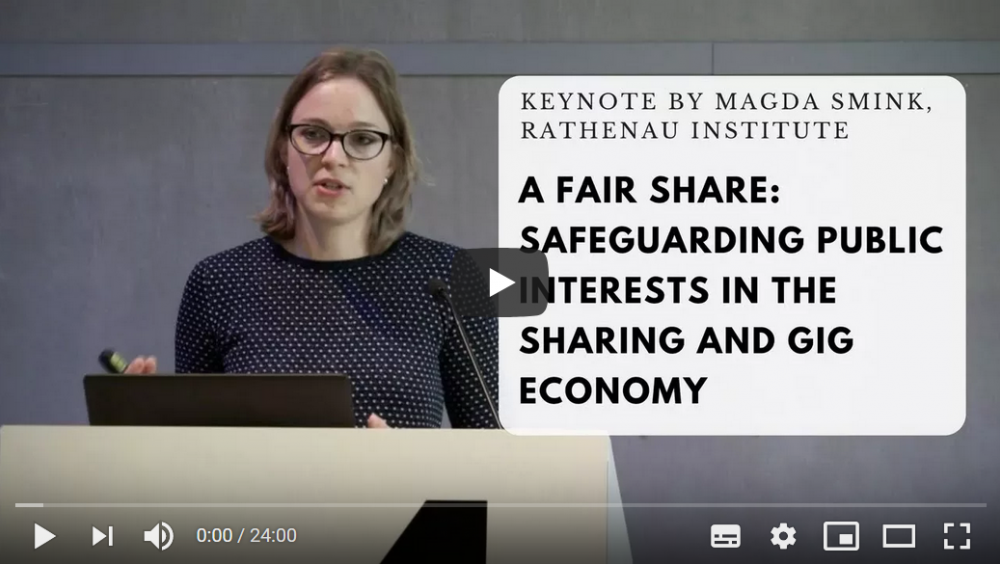C. Technology in support of green and social values
More and more goods and services are sold, rented, or shared via digital platforms. These platforms can serve values such as sustainability, social cohesion, employment, and entrepreneurship, but may undermine other values including equality, decent work, consumer protection, non-discrimination, privacy, autonomy, road safety, and quality of life. A municipality would do well to list the values it wants to promote and protect in an assessment framework, which allows it to judge whether a platform adds value to the community. The result may be measures ranging from prohibition to stimulation.
The Belgian city of Ghent has restricted the renting out of houses to tourists through platforms such as Airbnb. It doesn’t want the shortage of affordable housing to worsen. By contrast, the city fosters platforms for car-sharing, including by providing them with free and reserved parking spaces.[1]
The disadvantages of the platform economy are primarily manifested on commercial platforms. These platforms can contribute to the commercialisation of human relationships: if people rent rather than lend out their homes, profit replaces hospitality. Such platforms also threaten to increase inequality: some homeowners earn substantially thanks to Airbnb, whereas renters do not have that option. Workers in the platform economy often face poor working conditions – especially in the case of bogus self-employment – and are the slaves of algorithms. Platform services that seem convenient to consumers may be a disaster for workers.
Commercial platforms compete for the market rather than in the market. Surfing on the network effect,[2] they strive for a monopoly, at which point shareholders can appropriate an even greater part of the created value because users no longer have a choice. Governments would therefore do well to promote non-commercial and cooperative[3] platforms[4] by engaging goods and services themselves,[5] or by making a digital infrastructure available. In order to make sure that public values are protected, governments can even take the lead in creating new platforms, for instance for door-to-door mobility services.[6]
The Portuguese city of Cascais has set up its own mobility platform, MobiCascais. A smart card, an app, and a website allow travellers to reserve, use, and pay for a wide range of mobility-connected services, from buses and trains to shared bicycles, shared cars, taxis, patient transport, parking, and electric car charging. By integrating different modes of public and private transport, Cascais aims to offer its citizens smooth mobility that is less dependent on private cars.[7]




